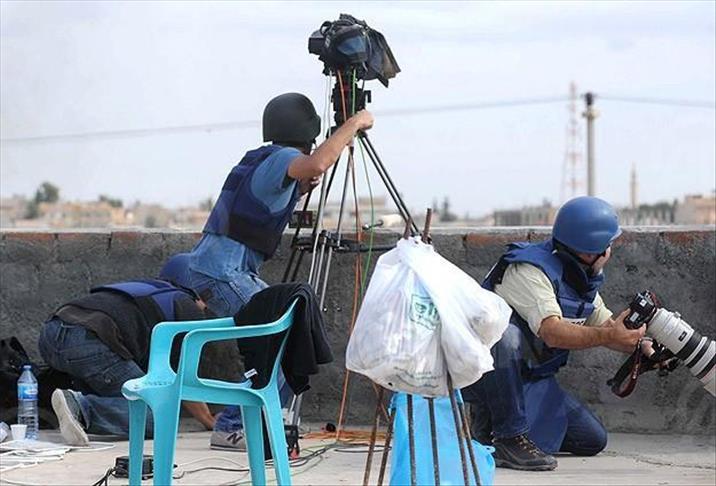
by Ilgin Karlidag and Hajer M'tiri
ANKARA
When Turkish journalist Adem Ozkose entered Syria to film a documentary, he didn’t expect to be kidnapped by armed men and to be held captive for 68 days.
‘’Being a journalist in Syria is like walking along the borders of death,’’ Ozkose told Anadolu Agency.
Ozkose, who works for a Turkish magazine, said he was approached by a group of armed men who support forces close to Bashar al-Assad’s regime. He said the group held him captive in a village for a week before delivering him to an intelligence prison, controlled by regime forces.
Although 36-year-old Ozkose wasn’t physically tortured during detention, he said being kidnapped ‘is a torture in itself.’
‘’The intelligence prison contained a dungeon, located 1,5 meters below the ground, Ozkose said. ‘’People were placed in all corners, treated as if they were in a medieval prison.’’
Ozkose said he was finally released with support from the Turkish people, the state and the media from across the world. Turkish IHH, a humanitarian relief organization, also helped push for diplomatic efforts for Ozkose’s release.
As the Syrian civil war enters its third year, the New York-based Committee to Protect Journalists (CPJ) ranked war-torn Syria as the most deadly country for journalists in 2013.
At least 29 journalists were killed and 60 were abducted in Syria in 2013, according to the CPJ.
On March 3, France-based Reporters Without Borders (RWB) released a report on names and countries of journalists who have been abducted or disappeared in countries around the world.
At least 22 journalists working for newspapers from around the world are currently abducted or missing in Syria, including 12 foreigners and 10 Syrians, according to the report by RWB.
But journalists are not the only ones targeted.
On December 9, Syrian human rights lawyer, Razan Zaitouneh, her husband and two other peaceful activists were abducted in Damascus and are still missing, according to a report by, SKeyes, a foundation for media and cultural freedom.
The report said both the Assad regime and some opposition members had threatened and committed violations against journalists and activists.
The report said Assad's regime used "cruel" techniques, as regime troops shelled safe residential neighborhoods and civil institutions and then blamed the armed opposition.
However, while the Syrian regime has kidnapped journalists since the conflict began, some militia groups are also kidnapping and even murdering journalists, Adem Ozkose said.
An armed group known as the Islamic State of Iraq and the Levant (ISIS) has systematically attacked journalists in certain areas in Syria in an attempt to control news and information in the country, according to RWB.
‘’But journalists are continuing to stay in this region despite the challenges they face,’’ Ozkose said.
englishnews@aa.com.tr
Anadolu Agency website contains only a portion of the news stories offered to subscribers in the AA News Broadcasting System (HAS), and in summarized form. Please contact us for subscription options.

